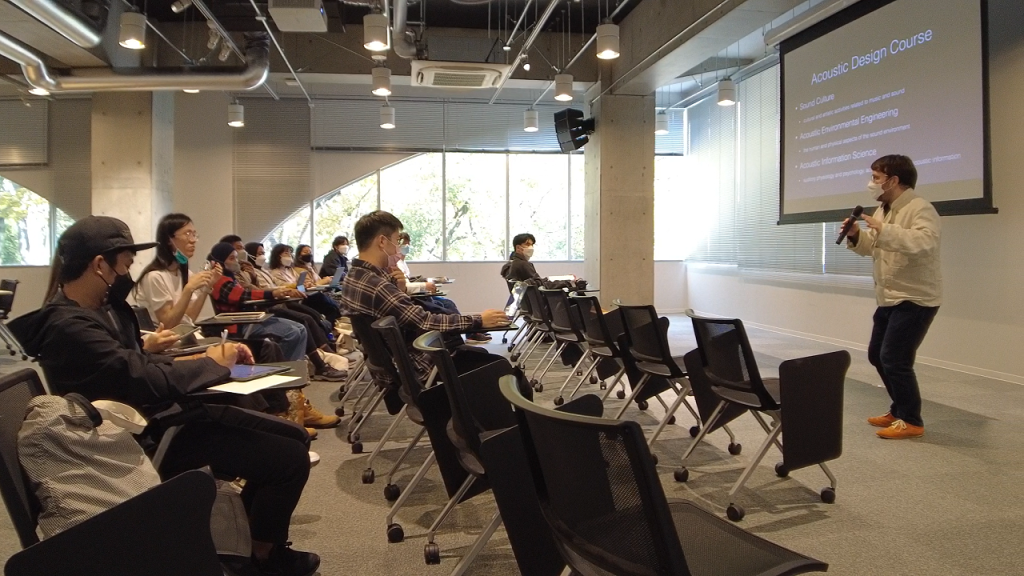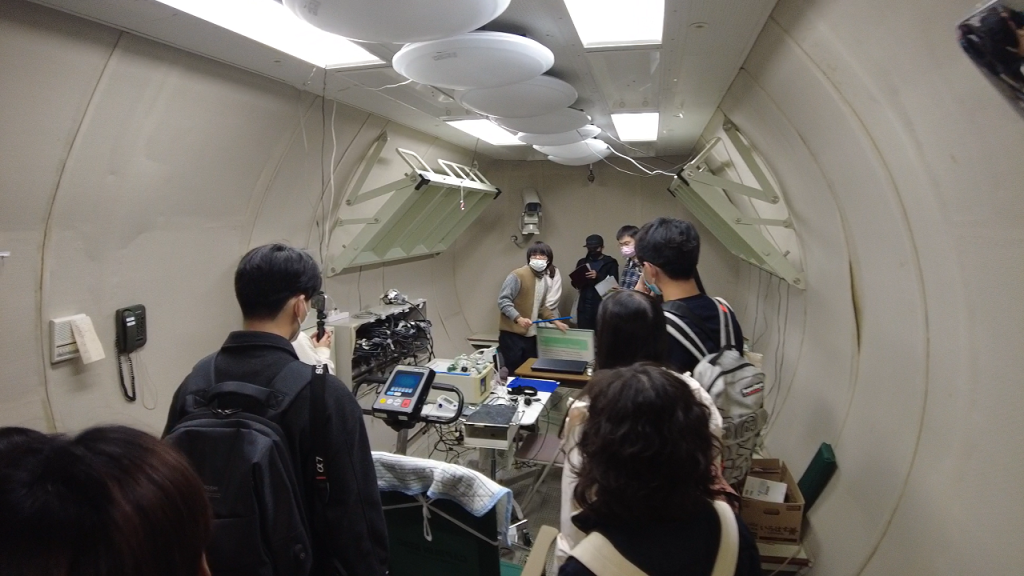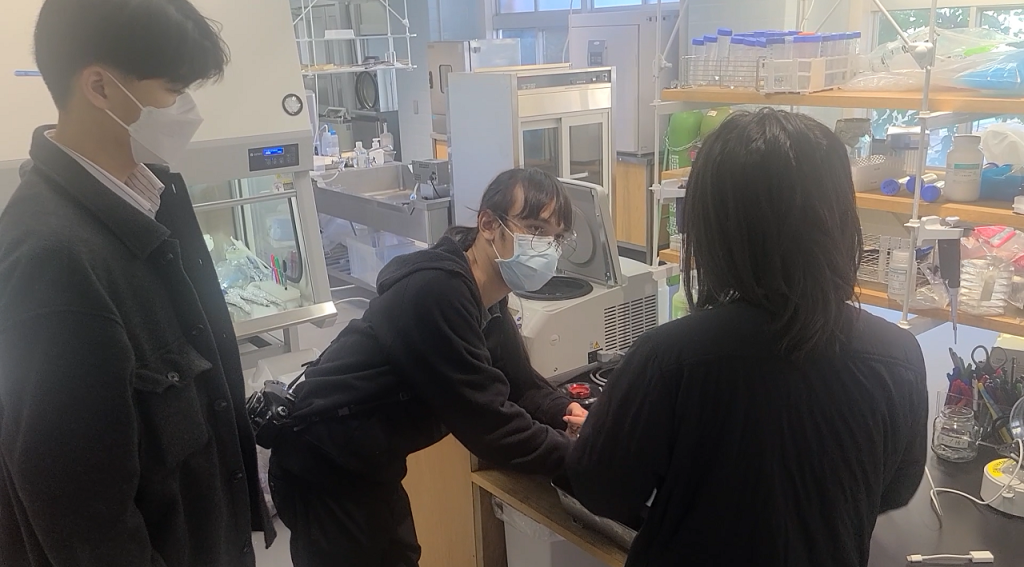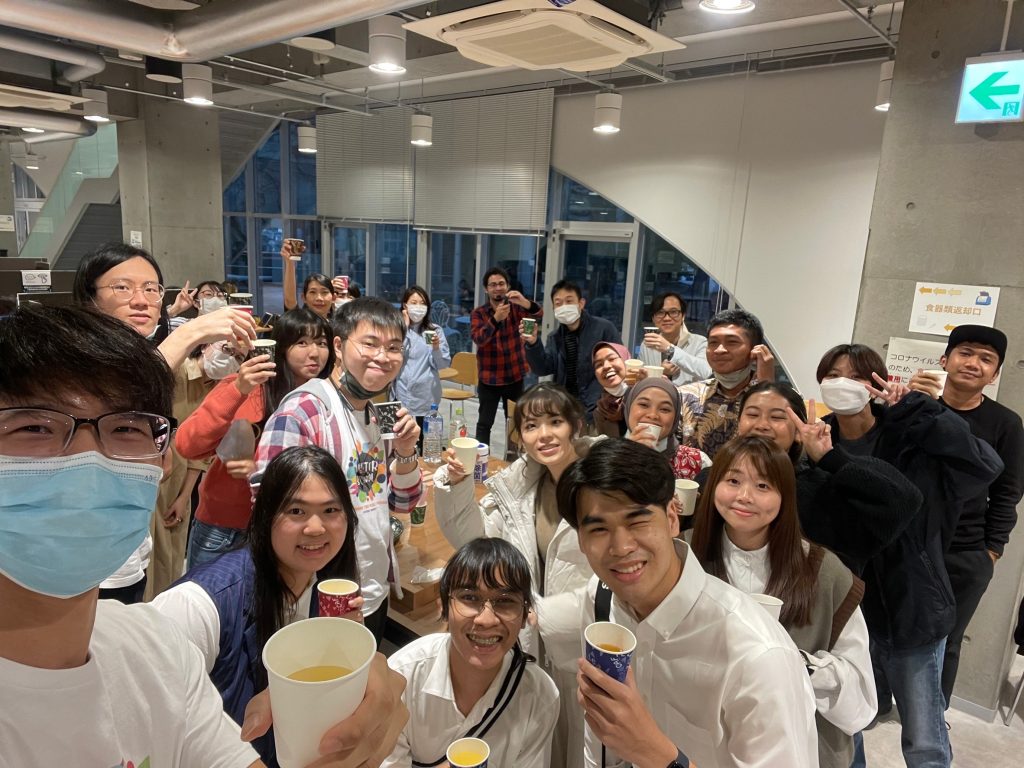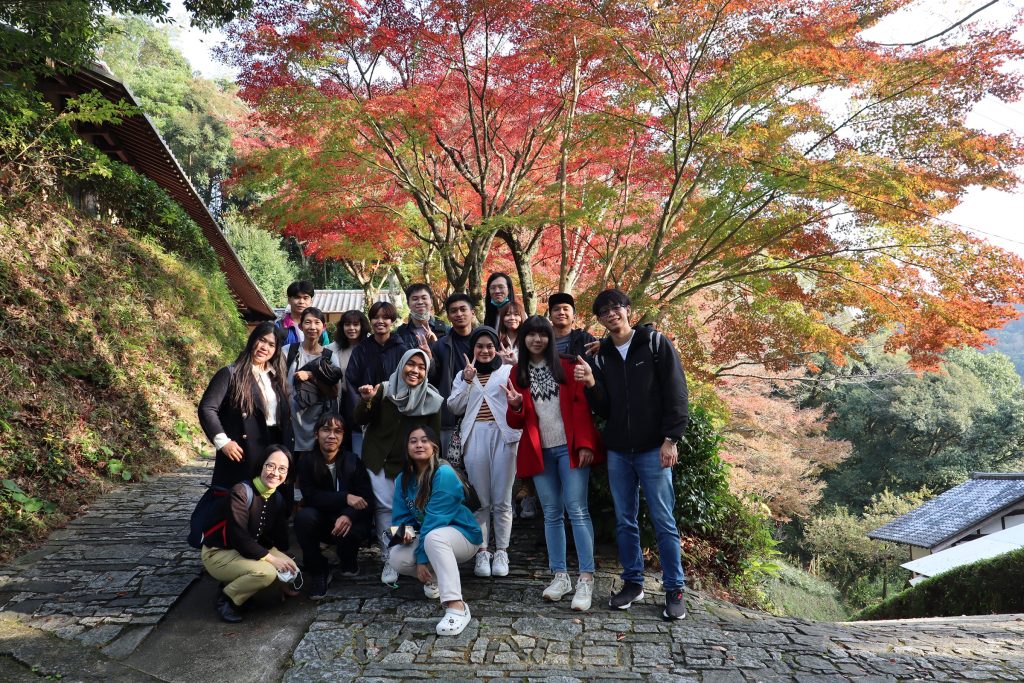
Envisioning the Future of Design
Kyushu University, Graduate School of Design has successfully organized our inaugural Winter School Program from November 14 to 21, 2022. We have invited 15 participants from 7 universities (Gadjah Mada University, Institute of Technology of Cambodia, National Taiwan Normal University, National Taiwan University, Rajamanjala University of Technology Thanyaburi, Silapakorn University, and Universiti Sains Malaysia) from 5 countries (Cambodia, Indonesia, Malaysia, Taiwan, and Thailand).
This program provided opportunities for overseas students to glimpse into our new Graduate School of Design program launched this year, with a curriculum designed to enable individual design fields to be cross-integrated more than ever before. It also provided participants with the experience of studying at our graduate school and interacting with our local and international students.
It is designed to give participants insights into the different disciplines. There are nine lectures conducted by faculty members of various fields and four laboratory sessions for participants to gain an in-depth understanding of the research work of the faculty member, a campus tour to be awe by our advanced and varied research facilities, a cultural tour of Karatsu City, and a final presentation by the participants on the final day. You can refer to the program through the attached below.
For the campus tour, participants visited our Acoustics Research Center, which houses the anechoic room, reverberation rooms, and recording studios, rare in acoustic laboratories. The Research Center for Human Environmental Adaptation with nine environmental chambers for controlling air pressure, temperature, air humidity, illumination, light color, and water pressure over various settings to evaluate human environmental adaptability and clarify the conditions required for healthy and comfortable living environments. The Experimental House for Living Space Design, where simulation of residential living environments, such as rooms, kitchens, bathrooms, toilets, and stairways, occurs to observe and analyze human behaviors and activities in real-life settings. The BioFoodLab, a rather new facility with equipment for scientific experiments and everyday cooking, explores the possibilities of biotechnology and food from a design perspective. Finally, the Design Workshop and Rapid Prototyping Lab, with various tools, machines, and advanced digital tools that the students and faculty members can use to produce their designs for creative endeavors, such as graduation work, projects, and research-related works.
For the lab sessions, participants are assigned to the lab of their choice. They have learned new knowledge and technology through hands-on activities such as experimenting on the body’s response to seasonal changes in the Human Environmental Adaptability Laboratory, extracting DNA samples from sloth’s stool, using drones to capture RGB images of buildings, experiencing various haptic illusions, designing, and making models on the learning environment and train design, etc.
In the final presentation, the participants shared that the lectures, lab sessions, and campus tour have broadened their knowledge and perspectives in their fields and outside their disciplines to see new possibilities. They have not seen and experienced the kind of technology and the research methodology in the lab sessions. It was thought-provoking and exciting for them. Also, they are grateful to our students, who have shown hospitality through guidance during the lab sessions, sharing culture and food, and singing at the Karaoke! The program concluded with a farewell party where everyone reminisced about the past week and new friendships made.
Kyushu University, Graduate School of Design has successfully organized our inaugural Winter School Program from November 14 to 21, 2022. We have invited 15 participants from 7 universities (Gadjah Mada University, Institute of Technology of Cambodia, National Taiwan Normal University, National Taiwan University, Rajamanjala University of Technology Thanyaburi, Silapakorn University, and Universiti Sains Malaysia) from 5 countries (Cambodia, Indonesia, Malaysia, Taiwan, and Thailand).
This program provided opportunities for overseas students to glimpse into our new Graduate School of Design program launched this year, with a curriculum designed to enable individual design fields to be cross-integrated more than ever before. It also provided participants with the experience of studying at our graduate school and interacting with our local and international students.
It is designed to give participants insights into the different disciplines. There are nine lectures conducted by faculty members of various fields and four laboratory sessions for participants to gain an in-depth understanding of the research work of the faculty member, a campus tour to be awe by our advanced and varied research facilities, a cultural tour of Karatsu City, and a final presentation by the participants on the final day. You can refer to the program through the attached below.
For the campus tour, participants visited our Acoustics Research Center, which houses the anechoic room, reverberation rooms, and recording studios, rare in acoustic laboratories. The Research Center for Human Environmental Adaptation with nine environmental chambers for controlling air pressure, temperature, air humidity, illumination, light color, and water pressure over various settings to evaluate human environmental adaptability and clarify the conditions required for healthy and comfortable living environments. The Experimental House for Living Space Design, where simulation of residential living environments, such as rooms, kitchens, bathrooms, toilets, and stairways, occurs to observe and analyze human behaviors and activities in real-life settings. The BioFoodLab, a rather new facility with equipment for scientific experiments and everyday cooking, explores the possibilities of biotechnology and food from a design perspective. Finally, the Design Workshop and Rapid Prototyping Lab, with various tools, machines, and advanced digital tools that the students and faculty members can use to produce their designs for creative endeavors, such as graduation work, projects, and research-related works.
For the lab sessions, participants are assigned to the lab of their choice. They have learned new knowledge and technology through hands-on activities such as experimenting on the body’s response to seasonal changes in the Human Environmental Adaptability Laboratory, extracting DNA samples from sloth’s stool, using drones to capture RGB images of buildings, experiencing various haptic illusions, designing, and making models on the learning environment and train design, etc.
In the final presentation, the participants shared that the lectures, lab sessions, and campus tour have broadened their knowledge and perspectives in their fields and outside their disciplines to see new possibilities. They have not seen and experienced the kind of technology and the research methodology in the lab sessions. It was thought-provoking and exciting for them. Also, they are grateful to our students, who have shown hospitality through guidance during the lab sessions, sharing culture and food, and singing at the Karaoke! The program concluded with a farewell party where everyone reminisced about the past week and new friendships made.
| Attach file | |
|---|---|
| Link |

